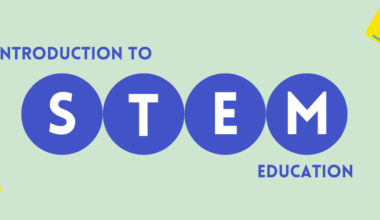Ever felt like your degree alone isn’t enough to get you ahead? You’re not alone.
As the job market gets tougher and industries keep changing, staying ahead means constantly learning and growing. Value-added courses are your ticket to doing just that. These extra classes and certifications give you practical skills and a competitive edge that can make all the difference. Think of them as a powerful boost to your education, helping you stand out and succeed in your career. Let’s explore why these extra courses are so valuable and how they can set you up for success .
What Are Value-Added Courses?
Value-added courses are extra classes or programs designed to enhance your primary degree. These include specialized training, certifications, workshops, and short courses. While your main degree provides a solid theoretical foundation, value-added courses offer practical, real-world skills and ensure you stay current with industry developments.
Why Are Value-Added Courses Important?
Enhances Job Prospects: In a crowded job market, having a degree isn’t always enough to make you stand out. Value-added courses give you additional skills and certifications that can set you apart from other candidates. For example, if you’re studying business, earning a certification in digital marketing can make your resume more appealing to employers and increase your chances of landing a job.
Keeps You Updated with Industry Trends: Industries are constantly evolving with new technologies and methods. Value-added courses help you stay up-to-date with these changes. For instance, a course in artificial intelligence can provide valuable insights if you’re in the tech industry, helping you stay relevant and competitive.
Fills Skill Gaps: Your degree might cover a broad range of topics, but it may not address all the specific skills needed for certain jobs. Value-added courses can bridge these gaps by offering targeted, practical training. This additional expertise makes you more qualified for roles that require specific skill sets not covered in your main degree program.
Supports Career Advancement: For those already in the workforce, value-added courses can lead to new opportunities for career growth. Additional qualifications can make you a stronger candidate for promotions or new job roles, giving you an edge over your peers. This can be especially important in fields where ongoing learning and professional development are valued.
Promotes Personal Development: Beyond professional benefits, value-added courses contribute to your overall personal growth. They encourage you to adopt a mindset of lifelong learning, improve your critical thinking, and enhance your adaptability. These traits are valuable not only in your career but also in everyday life.
Types of Value-Added Courses
Certifications: Certifications are specialized qualifications that demonstrate your expertise in specific areas, such as project management, digital marketing, or data analysis. They are recognized by employers and can significantly boost your resume, making you stand out in your field.
Workshops and Seminars: Workshops and seminars are short-term, intensive events that provide hands-on experience and practical knowledge on specific topics. These are often led by industry experts and offer valuable networking opportunities, allowing you to connect with professionals in your field.
Online Courses: Online platforms offer a variety of courses that you can take at your own pace. These courses cover a wide range of topics, including emerging fields and new technologies, providing you with the flexibility to learn on your schedule.
Internships and Industry Training: Internships and industry training programs provide real-world experience that complements your degree. These opportunities help you gain practical skills and understand how your academic knowledge applies in a professional setting.
Soft Skills Courses: Courses that focus on soft skills such as communication, leadership, and teamwork are crucial for career success. These skills improve your ability to interact effectively with others and are often key to professional advancement.
How to Choose the Right Value-Added Course
Align with Career Goals: Choose courses that align with your career objectives and the demands of your industry. Research which skills are in high demand to ensure the courses you select will enhance your career prospects.
Verify Recognition: Make sure the course is accredited and recognized by industry professionals. Courses with proper accreditation add more value to your qualifications and are more likely to be respected by employers.
Evaluate Quality: Look for courses that offer high-quality content and are taught by experienced instructors. High-quality courses lead to better learning outcomes and a more meaningful addition to your resume.
Consider Flexibility: Think about your personal schedule and learning preferences. Online courses provide flexibility, allowing you to learn at your own pace, while workshops and seminars offer focused, intensive learning experiences.
Conclusion
Value-added courses play a crucial role in modern education by providing practical skills and knowledge that complement your main degree. They help you stand out in the job market, stay current with industry trends, and advance your career. By investing in these additional courses, you not only enhance your professional qualifications but also foster personal growth. As the job market continues to evolve, these courses will become increasingly important for achieving long-term success.





